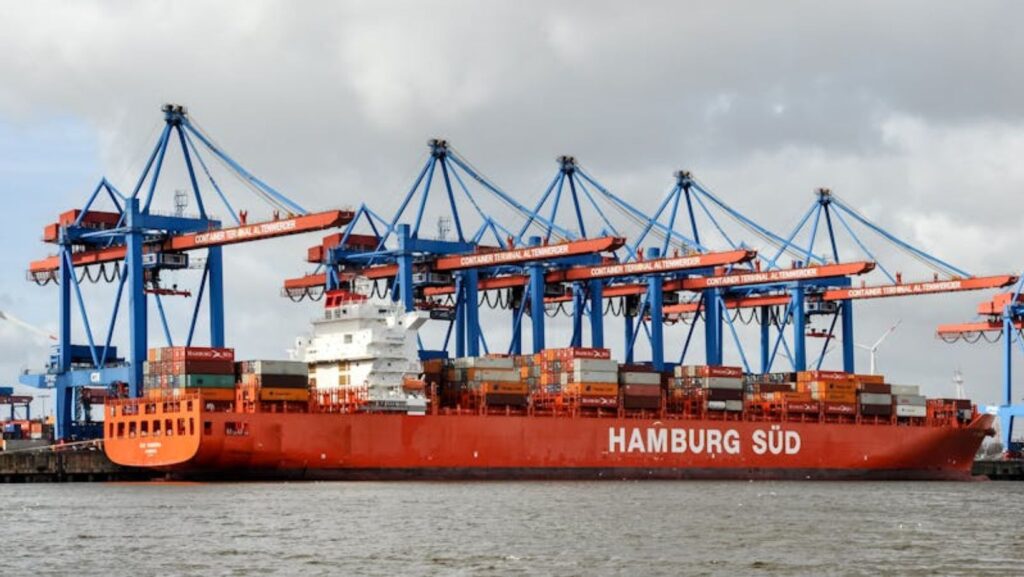
Manufactured goods, food and drinks, chemicals and hazardous materials—there’s hardly anything that container shipping companies don’t ship.
As they move goods across oceans and connect economies, they have become a key part of the global supply chain.
This mass movement of goods comes at a price, however. Research has found that maritime transport emits nearly 1000 million tonnes of carbon dioxide every year. It’s responsible for about 2.5% of greenhouse gas emissions globally.
That might not seem like a lot. But given its sheer scale, the carbon footprint of ocean-based trade is substantial. Moreover, the industry’s emissions are forecasted to rise to 250% by 2050 if no action is taken.
As climate change becomes an ever-pressing issue, container shipping companies can’t afford to stay anchored in old ways. It’s time to act.
Here are some strategies that can help container shipping companies reduce their carbon emission and steer toward a more sustainable future.
#1 Invest in Energy-Efficient Ships
The older the ship is, the more gas it guzzles. That is bad for not only your bottom line, but also for the environment.
Energy-efficient ships, on the other hand, are designed with advanced technology to minimize fuel consumption and emissions.
WindWings is a case in point. NPR reports that this technology powers giant cargo vessels using good old-fashioned wind.
Vessels outfitted with this tech cruise with minimal power from its massive engine. Meanwhile, the computerized sensors modify the fiberglass wings to take advantage of the wind’s strength and direction. This wind-assisted propulsion saves a significant amount of fuel as well as minimizes carbon emissions from the ship’s stack.
Many modern vessels feature optimized hull designs and hybrid engines that make every trip more efficient.
Upgrading your fleet might seem like a hefty investment. But the long-term savings on fuel costs and potential carbon taxes make it worth every penny.
#2 Switch to Renewables and Cleaner Sources of Fuel
Traditional heavy fuel oils (HFOs) are a major culprit when it comes to emissions.
HFO’s combustion in ship engines produces the most black carbon emissions compared to other fuels. WWF Arctic says that black carbon makes up a fifth (20%) of global shipping emissions.
It’s for this reason there is a growing wave of alternative fuels that can significantly cut emissions.
Biofuels are being explored as alternatives to heavy fuel oil. Made by converting biomass such as animal fats into fuel, the carbon emissions of biofuels are low.
Green methanol is another popular option. Maersk, an industry giant, is investing in green methanol—a climate-neutral fuel generated from pure hydrogen and captured carbon dioxide.
One of the most promising fuels for decarbonizing shipping is hydrogen, however. It burns with zero carbon emissions if it is produced via renewable energy sources.
Still, shipping companies are wary of adopting it due to storage issues. Power Engineering International states that it is typically stored as a cryogenic liquid or a high-pressure gas. The former is expensive, whereas the latter has a limited capacity.
Nonetheless, a breakthrough hydrogen storage technology is being developed. Reticular materials such as metal-organic frameworks (MOFs) can safely store hydrogen at ambient temperature and low pressure, notes H2MOF.
Reticular materials are crystalline porous materials with a cage-like structure that results in exceptionally large internal surface areas, where hydrogen can be stored in a safe and efficient way.
Want to know more about reticular material-based hydrogen storage technology? Click here.
#3 Adopt Slow Steaming Practice
Many ship owners are turning to slow steaming to cut down carbon emissions and operate in a more environmentally friendly way.
Slow steaming is basically a shipping practice where a ship’s speed is intentionally reduced to save fuel and reduce emissions. A paper published in MDPI confirms this, stating that it does cut down both CO2 as well as fuel consumption.
This practice began as early as 2000 as a response to rising bunker fuel costs, notes the World Economic Forum. However, it has evolved beyond a cost-effective measure; it has now become a way to make shipping more sustainable.
There is no denying that trips will take a bit longer when slow steaming. But the savings will be worth it. On top of that, ships experience less wear and tear when they are not racing across the ocean. So, there will be fewer maintenance costs down the line.
There you have it—three actionable strategies that can help your shipping business cut down carbon emissions. Whether it’s investing in energy-efficient ships or adopting slow streaming practices, these changes can make a real impact.
Don’t try overhauling your entire operations overnight, though. Take small steps. Maybe start by upgrading a few ships. Scale up your efforts once you see the benefits. Slowly but surely, your company’s carbon emissions will be little to zero.









